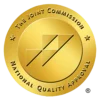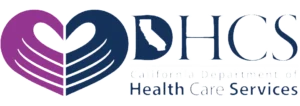Partial Hospitalization Program (PHP) and Intensive Outpatient Program (IOP) are two commonly used treatment options for individuals struggling with mental health and substance abuse disorders. While both offer intensive and structured therapeutic support, there are significant differences between the two approaches.
Our addiction recovery programs in San Diego, CA can help you or a loved one struggling with substance abuse. Seeking help is the first step in long-term recovery.
What Is A Partial Hospitalization Program (PHP)?
A Partial Hospitalization Program (PHP) is a structured program that provides support, therapy, and medical care for individuals struggling with substance abuse and mental health disorders. It is suitable for those who do not require 24-hour supervision but still need a higher level of care than traditional outpatient programs.
PHPs typically consist of daily sessions that can last up to six hours, five days a week. The program focuses on helping individuals manage their addiction while also addressing co-occurring mental health issues such as depression, anxiety, or trauma. It also aims to provide a safe and supportive environment for clients to develop coping strategies and learn relapse prevention techniques.
One of the key benefits of our Partial Hospitalization Program (PHP) is that it allows individuals to receive comprehensive treatment while maintaining their daily responsibilities such as work or school. It also offers more structure and support than traditional outpatient programs, making it an excellent option for those transitioning from inpatient rehab or needing additional support after completing residential treatment.
What Is An Intensive Outpatient Program (IOP)?
 An Intensive Outpatient Program (IOP) is a type of treatment program for individuals struggling with substance abuse, mental health issues, or other behavioral health disorders. It is designed to provide structured and intensive therapy and support while allowing the individual to continue living at home.
An Intensive Outpatient Program (IOP) is a type of treatment program for individuals struggling with substance abuse, mental health issues, or other behavioral health disorders. It is designed to provide structured and intensive therapy and support while allowing the individual to continue living at home.
IOPs typically involve a combination of group therapy vs individual therapy, educational classes, and may also include medication management, depending on the specific needs of the individual. These programs usually meet several times a week for a few hours each session, making them more flexible than inpatient treatment programs.
Our intensive outpatient program in San Diego, CA is often recommended as a step-down level of care after completing inpatient treatment or as an alternative to traditional outpatient therapy. They can also be used as initial treatment for those who do not require 24-hour supervision but still need intensive support.
IOP vs PHP
A partial hospitalization program (PHP) and an intensive outpatient program (IOP) are both types of behavioral health treatment programs that offer structured therapy and support for individuals struggling with substance use or mental health disorders. While both programs share similar goals, PHP and IOP have some key differences.
- Treatment Setting: The main difference between PHP and IOP is the level of intensity and structure in the treatment setting. A PHP is a more structured program that typically takes place in a hospital or clinical setting, whereas an IOP is less structured and can take place in an outpatient facility or community location.
- Time Commitment: In a PHP, individuals attend treatment sessions for 5-7 hours a day, 5 days a week. This allows individuals to receive intensive therapy while still being able to return home at night. In contrast, an IOP usually involves three to five days of treatment per week for 3-4 hours per session.
- Level of Care: A PHP provides a higher level of care compared to an IOP. It is recommended for individuals who require more consistent support and structure due to severe symptoms or co-occurring disorders. An IOP may be suitable for those with less severe symptoms who need ongoing support but can function independently outside of treatment.
- Services Offered: Both PHPs and IOPs offer individual and group therapy sessions, but PHPs also provide additional services such as medication management, medical monitoring, and psychoeducational groups. These services may not be available in an IOP unless the program specifically offers them.
- Cost: The cost of a PHP is typically higher than that of an IOP due to the more intensive level of care provided. However, this can vary depending on factors such as insurance coverage and location.
Both PHPs and IOPs are crucial components of our addiction treatment in San Diego, CA but differ in terms of intensity, time commitment, level of care, and services offered. It is important to consult with a mental health professional to determine which program would best suit an individual’s needs.
What Are The Potential Goals And Objectives Of PHP vs IOP?
- Stabilization: The main objective of PHPs and IOPs is to stabilize the individual’s mental health symptoms, including managing any acute or chronic conditions.
- Relapse prevention: These programs aim to reduce the risk of relapse by teaching individuals coping skills and strategies to manage their symptoms in daily life.
- Improving functionality: Another important goal is to help individuals improve their overall functioning, including their ability to perform daily tasks, maintain relationships, and participate in work or school activities.
- Building a support network: PHPs and IOPs often involve group therapy sessions where individuals can connect with others who are going through similar experiences. This helps build a supportive network that can provide encouragement and understanding during the recovery process.
- Education: Education about mental health conditions, treatment options, and healthy coping mechanisms is an essential component of these programs. By providing individuals with information about their condition, they can better understand their symptoms and learn how to manage them effectively.
- Individualized treatment plans: PHPs and IOPs focus on developing individualized treatment plans that address each person’s unique needs and goals. This allows for a more personalized approach to treatment at our outpatient recovery center in San Diego, CA, which can be more effective in promoting long-term recovery.
What Are The Treatment Modalities Used In PHP vs IOP?
PHP and IOP are two types of treatment programs that provide support to individuals with mental health or substance abuse issues. While both programs offer similar services, they differ in the level of intensity and duration of treatment.
Treatment Used in Partial Hospitalization Programs (PHP)
Partial Hospitalization Programs (PHP) typically involve structured, full-day treatment for a set number of days per week. This program is often recommended for individuals who require a higher level of care than traditional outpatient therapy but do not need round-the-clock supervision. The treatment modalities used in PHP include:
- Individual Therapy: One-on-one sessions with a therapist to address specific issues and develop coping skills.
- Group Therapy: Group sessions led by a therapist where individuals can share their experiences, learn from others, and receive support from peers.
- Medication Management: Medical professionals may prescribe medication to manage symptoms or aid in recovery.
- Family Therapy: Involving family members in therapy to improve communication, address conflicts, and strengthen relationships.
- Behavioral Therapies: Techniques such as cognitive-behavioral therapy (CBT), dialectical behavior therapy (DBT), and mindfulness-based therapies are commonly used in PHP to help individuals change negative thoughts and behaviors.
Treatment Used in Intensive Outpatient Programs (IOP)
Intensive Outpatient Programs (IOP) offer more flexible schedules with fewer treatment hours per week compared to PHP. This type of program is suitable for individuals who have completed higher levels of care or have less severe symptoms that do not require round-the-clock supervision. The treatment modalities used in IOP include:
- Individual Therapy: Similar to PHP, individual therapy is offered in IOP to address personal issues and develop coping strategies.
- Group Therapy: Individuals participate in group sessions led by a therapist where they can share their experiences and receive support from peers.
- Support Groups: These groups are led by peers or trained facilitators who provide guidance, education, and encouragement for recovery.
- Family Education: Involving family members in therapy to educate them about mental health or substance abuse issues and how to support their loved one’s recovery.
- Life Skills Training: Teaching individuals practical skills such as stress management, communication, and problem-solving to help them navigate daily life challenges.
Both PHP and IOP are effective treatment options for individuals struggling with mental health or substance abuse issues. The decision between the two programs will depend on the individual’s specific needs and the recommendation of their treatment team. It is essential to consult with a mental health professional to determine the appropriate level of care for optimal recovery.
Importance Of Aftercare In Recovery
Aftercare is an essential part of the recovery process for individuals who have completed a rehabilitation program for addiction or mental health issues. It refers to the ongoing support and resources provided to individuals after they have completed a treatment program. Aftercare can take many forms, including addiction therapy services in San Diego, support groups, and continued medication management.
One of the main reasons why aftercare is crucial in recovery is that it helps individuals maintain their sobriety or mental wellness. Completing a treatment program is a significant accomplishment, but it does not guarantee long-term success.
Without proper support and resources, individuals may struggle with relapse or other challenges that could hinder their recovery progress. Aftercare provides them with ongoing guidance and assistance to navigate these challenges while staying on track toward their goals.
Receive Outpatient Care At Bayview Recovery Center
Bayview Recovery Center offers a comprehensive outpatient care program for individuals struggling with addiction and mental health issues. Our experienced team of professionals creates personalized treatment plans to address each person’s unique needs and circumstances.
Overcoming addiction takes time and effort, but with our compassionate team by your side, you can achieve lasting change in your life. Contact us today to learn more about our outpatient care program at Bayview Recovery Center.

 An Intensive Outpatient Program (IOP) is a type of treatment program for individuals struggling with substance abuse, mental health issues, or other behavioral health disorders. It is designed to provide structured and intensive therapy and support while allowing the individual to continue living at home.
An Intensive Outpatient Program (IOP) is a type of treatment program for individuals struggling with substance abuse, mental health issues, or other behavioral health disorders. It is designed to provide structured and intensive therapy and support while allowing the individual to continue living at home.


